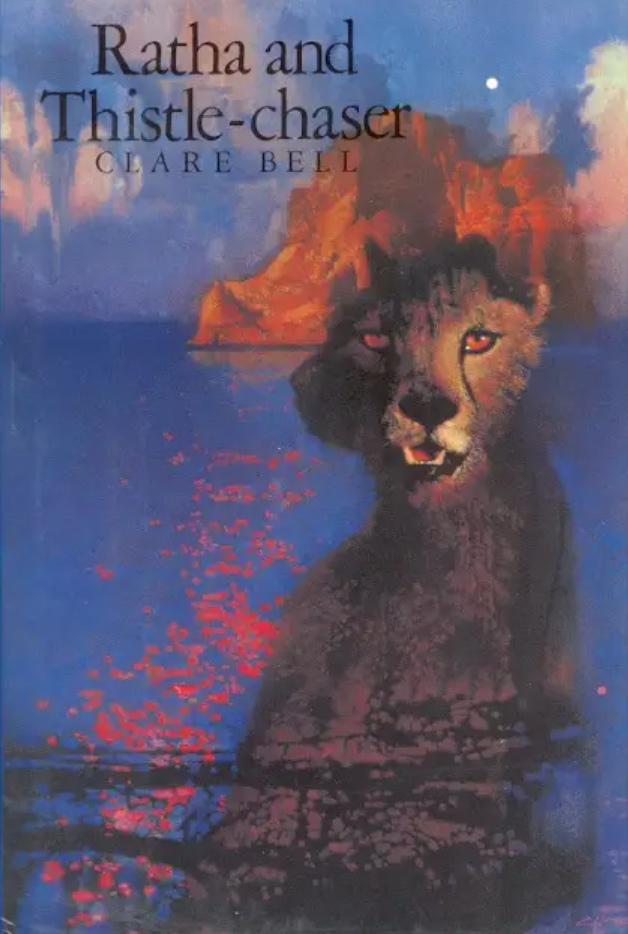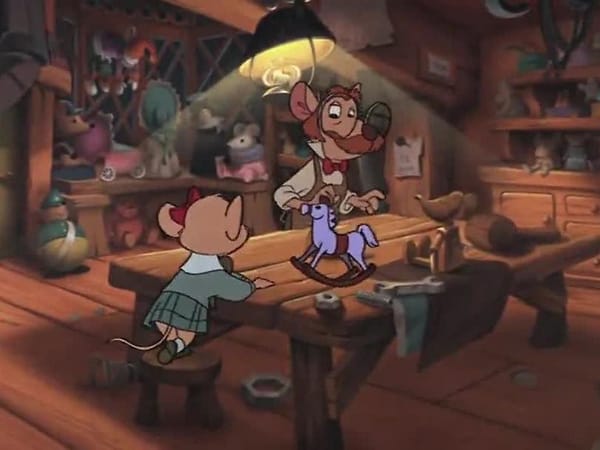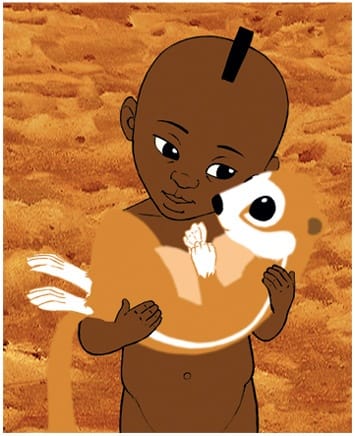I learned so much from Fred Rogers about the concept of the inner drama. It's why some stories draw us in over and over, and why some leave an imprint. The fiction leaves an impression of something we otherwise can't see, but it's a pattern/story that's there nonetheless.
This book came up in CBfG (Children's Books for Grown-Ups). Part of the format of CBfG is that you can either read a picture book or tell a given story in your own words. It's interesting what features come up when we tell stories remembered from a while back, and it's interesting to see what the actual details are if/when you revisit the full story.
It's hard for me to tell this one without crying because it reflects a lot of my feelings in my relationship with my mom, and maybe some of the things I understand of her experience as well as my own.
It's the sequel to Ratha's Creature (Clare Bell), just as formative for me as the L'Engle books I mentioned here. Ratha lives in a clan of intelligent prehistoric wildcats who refer to themselves as the Named. They are herders and the clan is completely male-dominated.
Ratha is a yearling who discovers fire and who takes a mate outside of the clan. Thistlechaser is the female cub among her litter. Thistle's father, who is Unnamed, is worried that the cubs won't have the same kind of intelligence (and speech) that the Named do. The cubs exhibit a different kind of intelligence from that which Ratha was raised to want. In frustration, she bites Thistlechaser and leaves.
Thistle grows up and navigates life with a crippled limb. She has herding instincts of her own that she begins to naturally apply on some beach-dwelling ocean creatures. She swims in the ocean and her limb begins to heal.
Thistle has terrible nightmares about a Dream Biter. The imprint of this story followed me in a way I didn't understand until recently.
The tension between Ratha's relationship with fire (her creative power), her cubs (another form of creativity), and the values of her original tribe nearly overtakes her.
I like Thistle for the same reason I like reading Temple Grandin – she demonstrates a more instinctual kind of intelligence that exists in all of us and that is often diminished or disregarded. I like Thistle because she keeps going and she learns how to self-heal.
At least – that's what I remember...




Member discussion